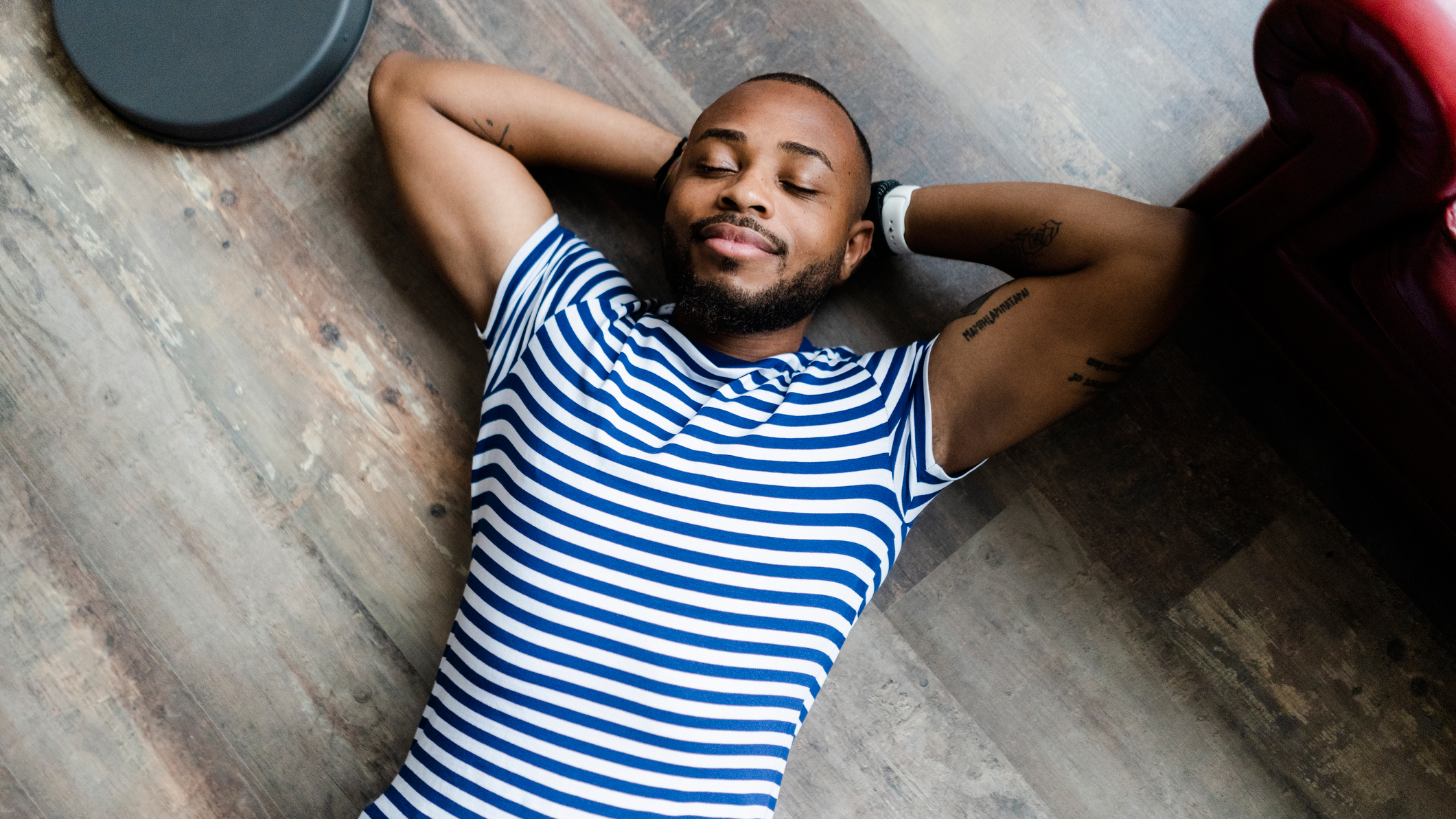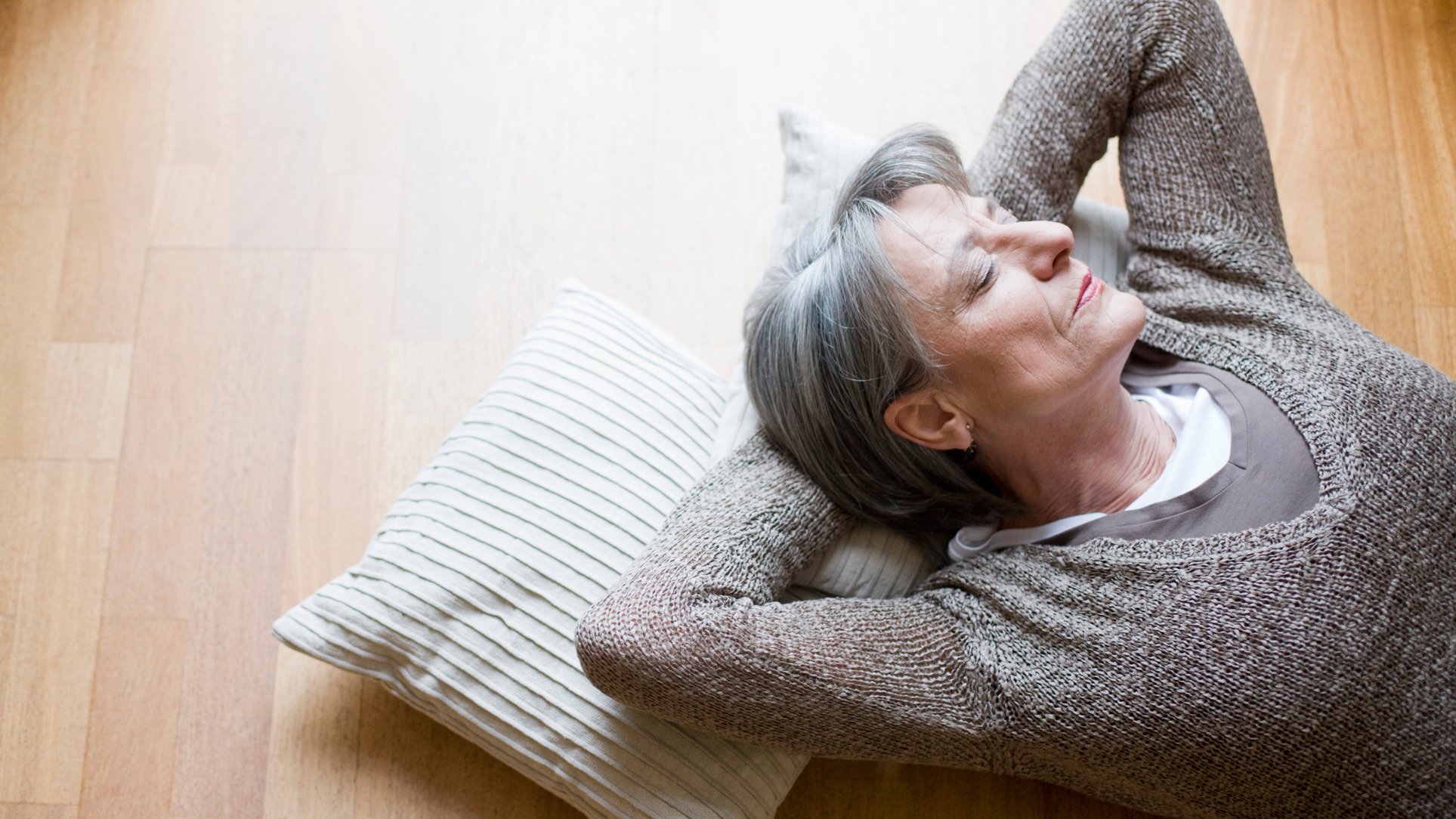Is sleeping on the floor really good for your back? Here's what the science says
Floor sleeping is a back-to-basics wellness movement gathering steam, but just how much science is behind it?


Much like barefoot running, cold showers and the caveman diet, sleeping on the floor has been having a bit of a renaissance over the last few years. The theory is largely the same for all of the practices listed above: we're too comfortable these days, with our cushioned soles, warm water and processed microwaved food.
These wellness warriors say our bodies aren't designed for life with modern western "comforts", and we need to go back to basics and embrace little parts of how our ancestors lived in order to prevent joint pain, stay healthy and embrace life.
However, there's usually a lot of anecdotal evidence and a conspicuous lack of science to back these claims up, and you'll never see an athlete shirk the best running shoes for men, or best running shoes for women. So why should you abandon your bed?
For starters, firmer surfaces are said to be better for sleep health than squishy ones. Anecdotal evidence reports disappearing back pain as well as improved posture. On a soft surface, our spine curves to mould to the shape of the surface, and we go from a soft mattress to a soft chair, with a bit of exercise in between. Sleeping on a firm surface is said to provide an opportunity for the spine to hold its natural shape.

Poor posture is a danger, especially to those who sit at their desk all week. Awareness of your posture is correlated with an increase in pain, according to science, and improvements in posture are associated with a reduction in pain. Other cultures with active lifestyles commonly sleep on the ground or floor, although there there's little specific evidence that floor sleeping can really mend your posture.
There are other arguments too - mattresses can often act as a trap for dust mites, so sleeping on a (clean) floor on just a few mats could be better for allergies. It's also likely to be cooler on the floor, which promotes better sleep according to sleep specialist Dr. Christopher Winter in Huffpost.
There's not much science on the subject (presumably, not many subjects want to sleep on the floor for a month). One study in the journal Sleep Health describes "medium firm" mattresses as providing better sleep than soft ones, but also better sleep than surfaces firmer than that. For this study, the results fall somewhere in between a soft mattress and a hard floor.
Get the Fit&Well Newsletter
Start your week with achievable workout ideas, health tips and wellbeing advice in your inbox.
Sleeping on the floor could be a life-changing culture shock, helping you to toughen up in all walks of life, fix your back problems, help you re-align your posture and turn into the person you want to be. Or it could just make you really grumpy and sore for a few nights before you call the whole thing off and head back to bed.
There's really no scientific data out there right now in order to make an informed decision. The options seem to to either try it yourself, or opt for a firmer mattress - even one of our best mattress toppers.
Matt Evans is an experienced health and fitness journalist and is currently Fitness and Wellbeing Editor at TechRadar, covering all things exercise and nutrition on Fit&Well's tech-focused sister site. Matt originally discovered exercise through martial arts: he holds a black belt in Karate and remains a keen runner, gym-goer, and infrequent yogi. His top fitness tip? Stretch.
-
 I did 30 minutes of walking yoga every day for a month—here's what I learned
I did 30 minutes of walking yoga every day for a month—here's what I learnedThe daily dose brought more than just peace and calm into my life
By Lou Mudge
-
 Do your gut a favor with this dietitian's gut-friendly veggie-filled fried rice recipe
Do your gut a favor with this dietitian's gut-friendly veggie-filled fried rice recipeKeep your tummy happy with this flavorful twist on a favorite
By Lou Mudge